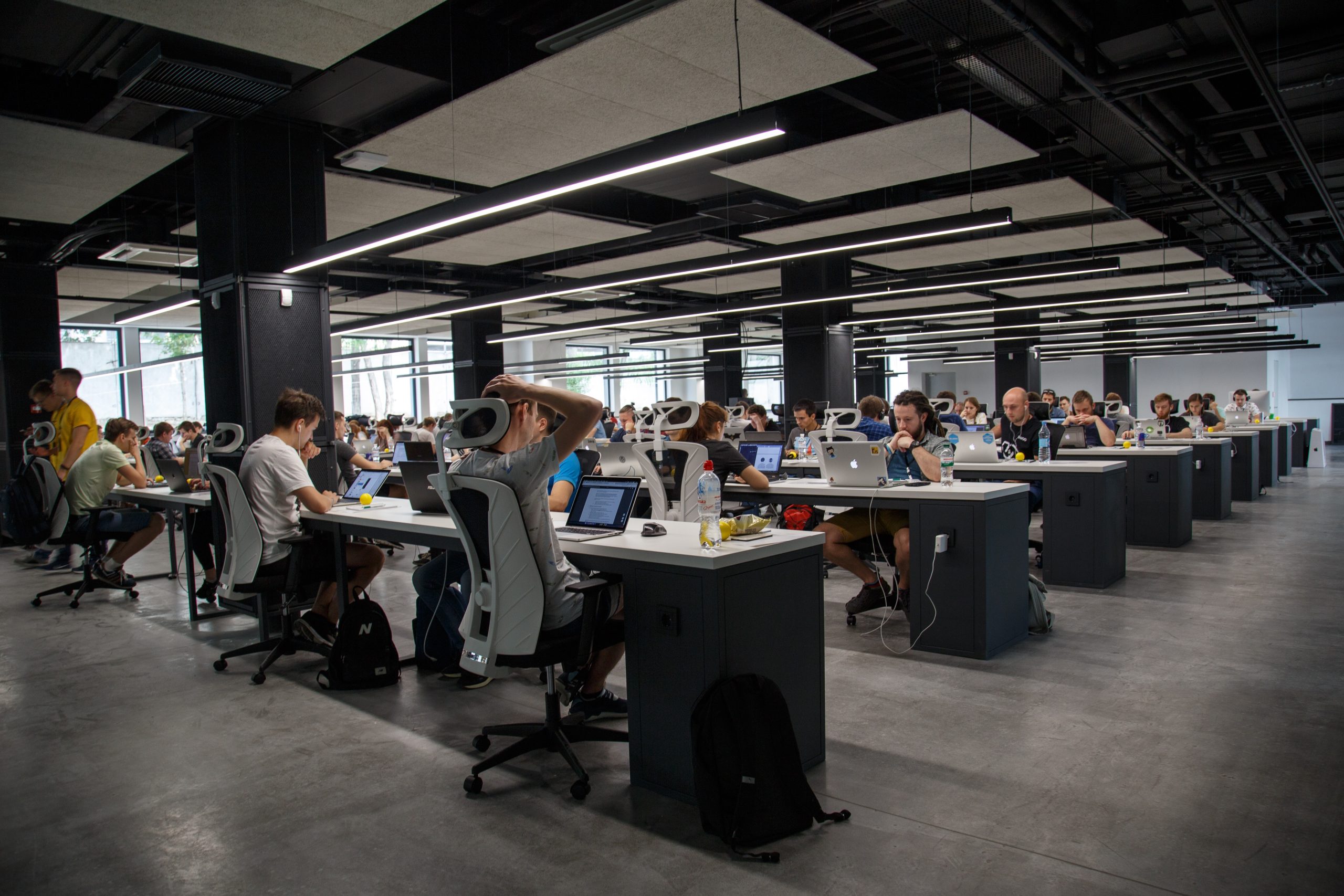EPRA Hub key policy dilemmas
The EPRA Hub main areas of research and action concern the transformation of public governance, the tensions that democracy faces and the role of education and citizenship policies in addressing them. These dilemmas deal with the restructuring of labour markets and socio-economic inequalities. Public policies analysis offers useful insights and steers the future of local, national and European communities addressing the transformations of the welfare state and new risks associated with eco-social problems.

Citizenship, Education and Democracy
Topic leaders: Paola Mattei and Maurizio Ferrera
Members: Teresa Pullano, Jaewook Lee, Federico Bruno, Elisa
Bordin, Ilaria Madama, Nicola Riva, Beatrice Magni
The research programme is concerned with the study of the political, sociological and economic relationship between social citizenship and democracy. Our research projects mainly focus on education policies, politics and reforms, through the empirical investigation of the governance of education in Europe and the study of comparative education and training systems. We investigate empirically research questions such as:
– the role of private and public actors in education policy making;
– the relationship between citizenship and education;
– the governance of international organizations’ assessment policies (such as OECD, UNESCO, and others);
– the study of the transition from secondary to tertiary in terms of equity and efficiency;
– education and populism and trust in science;
– citizen science and public engagement.
The gradual expansion of the EU’s social acquis has slowly but clearly started to disconnect social rights from their exclusive national foundations, leading to the emergence of a new “marble cake” pattern of rights’ production, which to a large extent reproduces the trajectory of federal polities. The aim if this research programme is to monitor and analyze this development, building on the framework elaborated by the EUSOCIALCIT project (www.eusocialcit.eu). The latter looks at social rights as bundles of power resources which enable individuals to claim and actually receive material benefits in order to cope with a codified array of risks and needs. The metaphor of the marble cake denotes the increasing mix of national and EU level power resources (normative and legal, instrumental, financial, judicial) which characterizes the new production process of social rights.
By shifting the attention from the national and formal dimension of rights (laws and their enforcement) to its concrete practice (access and outputs), our conception connects the concept of social citizenship more directly to what ultimately matters for life chances (individualised material benefits) as well as for the social and political bonds of a community (the rights-based claim and experience of social protection). In so doing, we move beyond the boundaries of the nation-state as the only producer of social entitlements and are able to appreciate the increasing relevance of the European Union as a provider of power resources and guarantor of policy outputs.
We plan to monitor the evolution of the social citizenship marble cake in various policy domains, including education as well as social and health care services.

Welfare, Sustainability and Eco-Social Policies
Mitigating the effect of climate change while guaranteeing prosperity and equity constitute the great challenge of the 21st century. Few recognize however that social and environmental challenges are deeply interconnected. On the one hand, significant public resources are nowadays targeted to traditional welfare policies that have significant ecological footprints. On the other, environmental protection is critical to long-term welfare since it may affect prosperity. Moreover, ecological crises exacerbate social inequalities: not only vulnerable people are more exposed to ecological risks and tend to be less able to cope with it, but ecological policies have often regressive implications.
As these challenges become increasingly visible, there is a growing need to study the interconnection between institutions and policies – and also social and political actors – pursuing social and environmental objectives.
Our team thus specialises in tackling the complex policy, regulatory and political challenges related to a fair and inclusive green transition. It provides cutting-edge research and informed recommendations in the domain of “eco-social” policies, here intended as public policy instruments to pursue integrated environmental and social objectives, with a threefold aim: first, to understand whether and how different institutions and government levels and institutions are effectively committed to promote these innovative policy instruments; second, to elaborate on the possible roles that the welfare state can play vis-à-vis environmental challenges and policies and vice versa; third, and finally, understanding how such policies contribute addressing conflicts and trade-offs arising from pursuing goals in these two fundamental spheres.
Check our project website: https://www.ecosocialproject.com/

Migration, Diversity and Development Policies
Finding Agreement in Return (FAiR)
Funded under the Horizon Europe program “Culture, creativity and inclusive society” in response to the call “Return and readmission of irregular migrants in the EU,” FAIR promises to bolster EU return migration governance by addressing the legitimacy deficits that plague policies on return and alternatives to return. FAIR complements dominant rational choice perspectives by systematically assessing the importance of norms, frames, and shared meanings for intergovernmental cooperation on return. The project conducts quantitative and qualitative research focusing on five non-EU+ (Georgia, Iraq, Niger, Nigeria, Turkey) and 5 EU+ states (Germany, Italy, Norway, Poland, and Switzerland). Specific contributions of FAiR include econometric models to reduce measurement bias in Eurostat return data; better measurements of Europe’s return policies through a Migration Return Policy Index (MIREX); causal inference analysis for all EU+ countries on the effects of policy and non-policy drivers of enforced return; a large survey experiment in 10 EU+ countries on public support for alternatives to return policies; improved guidelines for the human rights monitoring of enforced return; and, a negotiation and implementation game that will help international actors to reach agreement on return and readmission. The FAiR consortium consists of the Erasmus University Rotterdam (coordinator), the University of Geneva, Samuel Hall, the Polish Academy of Sciences, the University of Milan, the University for Continuing Education Krems, the International Centre for Migration Policy Development (ICMPD), Koç University, Migration Policy Group (MPG), the Platform for International Cooperation on Undocumented Migrants (PICUM), and the Foundation for Access to Rights (FAR).
Migrant remittances and transnational ties: care, social change and development across borders (MIGREM)
The remittances of migrants represent a lens to study several crucial sociological issues at the macro, meso, and micro levels, including their implications: the link between migration and socio-economic development; family, gender, and intergenerational relations; transnational social protection and welfare; the social meanings, functions, and implications of money; the new lines of social stratification, inequality, and social innovation; lifestyle and consumption patterns. The MIGREM research project aims to highlight the implications, meanings, and functions of the remittances of migrants in transnational social fields. The project also aims to contribute to evidence-based public and policy discussions on migration, enabling a better understanding of the ability of migrants to mobilize material and intangible resources for the benefit of their families and communities.
The research project is funded by the Ministry of University and Research and envisions the collaboration of five teams of researchers from different universities: the University of Milan, the University of Trento, the University of Parma, the University of Pisa, and the University of Florence. The project combines a national survey on migrants’ remittances with qualitative case studies on both sides of remittance flows. Each unit participating in the research project delves into specific aspects of the remittances with qualitative methods. In particular, the unit of the University of Milan, the leading proponent, focuses on key aspects such as the different forms of collective remittances; the meaning of the sending of in-kind remittances; the intersections between the social obligation to send remittances to relatives and the integration in Italy.
Measuring irregular migration (MIRREM)
Based on a broad mapping of regularisation practices in the EU, as well as detailed case studies, MIrreM will develop ‘regularisation scenarios’ to better understand conditions under which regularisation should be considered as a policy option. Together with expert groups that will be set up on irregular migration data and regularisation, respectively, the project will synthesise findings into a Handbook on data on irregular migration and a Handbook on pathways out of irregularity. The project’s research covers several contexts: Austria, Belgium, France, Germany, Spain, Finland, Greece, Italy, Ireland, the Netherlands, Poland, Portugal, the United Kingdom, the USA, Canada, transit countries. MIrreM will analyse policies defining migrant irregularity, stakeholders’ data needs and usage, and assess existing estimates and statistical indicators on irregular migration in the countries under study and at the EU level. In addition, it will develop innovative methodological approaches for estimating different aspects of irregular migration.
MIrreM builds on the earlier efforts of the FP6 funded CLANDESTINO project (2007-2009), the first-ever research project on estimates of irregular migration in the EU, in which several partner institutions as well as individual researchers now based at other institutions were involved.
In addition, MIrreM draws on the insights and framework of other projects, such as the REGINE (Regularisations in Europe) project (2007-2008) that examined regularisation practices in 27 EU Member States as well as studies commissioned by the EU Agency for Fundamental Rights (FRA) on the Situation of migrants in an irregular situation in the EU (2009-2011) and The Treatment of third-country nationals at the EU’s Southern maritime borders (2010-2013) involving several other MIrreM researchers and institutional partners. Moreover, MIrreM draws on the City Initiative on Migrants with Irregular Status in Europe (C-MISE) based at MIrreM’s project partner the University of Oxford. MIrreM will also engage in extensive collaboration with a series of ongoing research projects funded under the EU’s Horizon Europe Programme.

Governance, Digital Transition and Public Service
Within the Evidence Based Policy Research and Action Hub – Workpackage 3 platform, we aim at two goals. First, to collect, process and analyze data and information on public sector digitization, with particular reference to policy areas chosen in synergy with other Workpackages on the platform: educational policies, health policies and welfare policies. Second, to monitor reforms related to the digital transition on the field of administrative simplification, with respect to a variety of administrative procedures and requirements (first and foremost, those related to the authorization of production and business activities), in order to verify the responsiveness of public administrations to the current needs for change and to put forward useful proposals for their organizational transformation, understood as a primary and indispensable need for the effective
implementation of public policies. The pursuit of these research goals will allow to identify a set of empirical indicators to monitor and evaluate the effectiveness of administrative simplification procedures and digitization strategies in the investigated policy areas.
The approach will be integrated, blending social, legal and cognitive sciences,
in accord to a common behaviorist perspective, and using both qualitative and quantitative methods. It will also have a comparative and multilevel breath, with a main focus on the conditions of implementation of different policies by local, regional, and national public authorities, as well as by European supranational institutions. The research activity will be accompanied by a practice of dissemination of the results obtained within the scientific community, as well as among the various stakeholders (public and private) directly or indirectly interested in the digitization of the public sector and its different policy areas, through the organization of workshops and thematic seminars.

Youth, Gender and Generations
The “Next Generation at Work” permanent observatory intends to present itself as a collaborative interdisciplinary research project on youth studies, with specific expertise on the topic of work, on the school-work transition and on innovative forms of presence of young people in the world of work, economy, culture and politics. It intends to create a context favourable to further collaborations between multiple research interests that use different theoretical references and methodological tools to make the Department of Social and Political Sciences a point of reference at an international level, placing it at the forefront of interdisciplinary research on contemporary issues in youth studies.
“Next Generation at Work” also intends to be a tool capable of giving greater visibility and integration to the research on the condition of youth carried out within the Department of Social and Political Sciences. The aim is to strengthen relations with the territory and to provide accurate empirical data for the development of evidence-based policies.
“Next Generation at Work” has the following objectives:
• organically connect researchers and research projects on youth and work, both within the Department of Social and Political Sciences and internationally
• give visibility and consolidate the reference role that the Department already occupies in the analysis of the relationship between young people and work
• establish the Department as a point of reference for research projects on the topic in order to act as a catalyst to attract national and international research funding, both of a strictly academic nature and in collaboration with various actors and stakeholders from civil society and the political world
• develop capacity in youth research and facilitate youth policy development through access to the latest research findings
• carry out a liaison action with civil society, in particular with youth associations, strengthening and giving greater visibility to the activities carried out in this area by the Department of Social and political sciences

Inequality, Labour Market and Poverty
Our research builds upon the recognition that social and economic disparities are deeply interconnected. We aim to explore the various dimensions of inequality, the dynamics of labor markets, and the strategies to combat poverty while acknowledging their intrinsic links. Our work involves conducting cutting-edge research and providing informed policy recommendations to better understand how institutions, policies, and a multitude of stakeholders contribute to shaping these critical domains. By examining the impact of labor market shifts on income distribution, assessing the effectiveness of poverty alleviation measures, and scrutinizing the role of socioeconomic policies, we aim to shed light on the intricate fabric of inequality, labor markets, and poverty, thereby offering evidence-based solutions for a more equitable society.

Global Public Policies
Topic leader: Andrea Ruggeri
The Global Public Policy component of the EPRA Hub starts from the idea that contemporary policymaking relies increasingly on the ability of government officials to source vital information and reliable evidence as they address current security threats such as civil wars, terrorism, cyber-attacks. Moreover, they need to tackle global public goods that need coordination efforts between national governments and non-state actors regarding – among several issues. – climate change, transnational health crises and global migrations.
The mission of this EPRA Hub component is to serve as a platform for the international and national community of researchers and practitioners, enabling them to connect, learn from each other, and to collaborate in preventing or mitigating conflict, shaping a more secure future and tackling global crises.
The core research areas are:
– Multilateral governance and its crises
– Changes and challenges to foreign polices
– Conflict mediation and peace operations
– Policies regarding military and defence sectors
– International environmental actions to tackle climate change
– International monitoring of political processes and human rights
– Transnational protests and diffusion of illiberal behaviours
This EPRA hub component – based on the past experience of professor Ruggeri in Oxford – aims to create short summaries of recent scientific works and translate them to provide a Library of Policy Digests for interested policymakers and practitioners about global politics and policies. Moreover, podcast discussing contemporary issues with experts on global challenges will be recorded.
